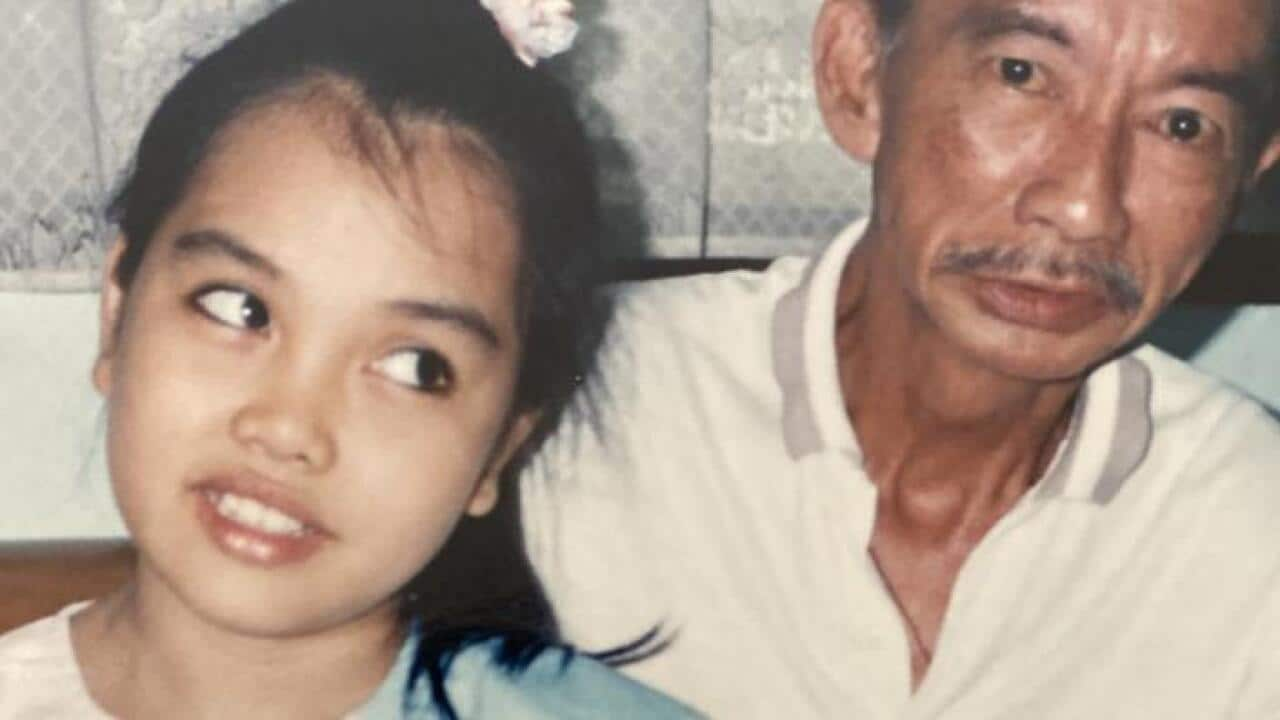It was my mum who dubbed Nana and Pa’s house The Lower Plenty Health Farm. My parents both had full-time jobs; they simply couldn’t take weeks off work every school holiday, so they would bundle all three of us kids into the car with our pyjamas and teddies and drive us out to Mum’s clinic. It was between our home and our grandparents’; Nana and Pa always met us halfway. They would shower us with kisses and drive us back to their stretched-out house on their sprawling bush block. The house wasn’t stretched out to begin with; it was originally a tiny weatherboard place without a floor, but as more kids arrived, my grandparents tacked on extra rooms. Now the rooms were empty except during the holidays. My cousin Dave was up in Sydney, and the other cousins weren’t even a twinkle in my uncles’ and aunties’ eyes. On Dad’s side we were the youngest in a long line of cousins: loved, certainly, but tacked onto the end. At Nana and Pa’s, we were the centre of attention.
Nana would fatten us up on wholemeal toast with peanut butter and honey, warm Milo, cheese and tomato sandwiches, mashed potatoes and casserole, and sweet orange slices.
Nana and Pa took their health farm responsibilities seriously. Nana would fatten us up on wholemeal toast with peanut butter and honey, warm Milo, cheese and tomato sandwiches, mashed potatoes and casserole, and sweet orange slices. Pa would play cricket with us in the driveway, my little brother batting left-handed just like his grandfather. We would climb the apple tree and pull carrots out of the veggie patch before they were even remotely ready, and when we were worn out, we would curl up on the golden-brown velvet couch to watch Willy Wonka and the Chocolate Factory. Nana had taped it from the TV, painstakingly pausing the recording at every ad break so we could watch the whole thing uninterrupted. Sometimes we’d visit Pa at his hardware shop, breathing in the smell of freshly cut pine from the timber yard. Nana and Pa would send us home in time for the new school term, rosy-cheeked, long-limbed, and having grown a couple of centimetres each.
The stretched-out house was knocked down last year. I watched it happen from the top floor of my grandparents’ new, compact home. My parents’ house – also a stretched-out one – was sold around the same time. It was time to downsize, to let another family grow into our brick veneer with the wonky angles and the colourful walls. We’ve all grown up now, even my little brother. My sister, the oldest, has a child; my parents have embraced the role of grandparents. They look after their grandson every Tuesday in their apartment on the fringe of the CBD. Instead of apple trees, he climbs the fountain at the local park; instead of watching videos he gets a thrill from pressing the lift buttons. My partner’s childhood was altogether different to mine. She grew up in a flag printing factory in rural Belgium. Her childhood was multilingual: she was raised watching Pokémon in German, speaking Flemish at home, hearing English on the radio, and reading French literature at school. She would ride her bike through the snow to get to school. Her grandparents had lived through the war; they had lost loved ones in the inexorable invasion and occupation of their country. Despite the lingering hurt, they had a lot of love to give; every night, her grandfather would leave a napkin-wrapped sweet biscuit on each of his grandchildren’s breakfast plates.
My partner’s childhood was altogether different to mine. She grew up in a flag printing factory in rural Belgium. Her childhood was multilingual: she was raised watching Pokémon in German, speaking Flemish at home, hearing English on the radio, and reading French literature at school. She would ride her bike through the snow to get to school. Her grandparents had lived through the war; they had lost loved ones in the inexorable invasion and occupation of their country. Despite the lingering hurt, they had a lot of love to give; every night, her grandfather would leave a napkin-wrapped sweet biscuit on each of his grandchildren’s breakfast plates.

Alice's grandparents on their wedding day. Source: Supplied
When we fell in love, my partner relocated her life to Australia. It wasn’t an easy decision; 16,000 kilometres is a long way to go, even for love. Every day she navigates her adopted home with curiosity and resilience. We’ve been together a long time now. Slowly, gradually, Australia has been moulding her; she, in turn, has been moulding me. Neither of us is just one thing anymore: she will always be a little bit Australian, and I will always be a little bit Belgian. It may be just a little bit, but it’s definitely there.
We don’t have kids yet. It’s one of those one-day-on-the-horizon things. When they do arrive, I wonder how they’ll be fattened up.
We don’t have kids yet. It’s one of those one-day-on-the-horizon things. When they do arrive, I wonder how they’ll be fattened up. Theirs will be an intercontinental existence, after all; they’ll alternate between Australian summers spent dropping bombs at the local pool and Belgian winters clutching cups of hot chocolate at snowy night-time Christmas markets. They’ll drink tea with a squeeze of fresh orange juice and learn to keep their elbows off the table with their Opa; they’ll devour the raggedy passed-down family copy of Each Peach Pear Plum and learn to kick a footy with their Nana and Pa. I want them to have everything: Sinterklaas and bunyips, mangoes and stoofvlees. I don’t want them to have to choose. I hope they’ll speak Flemish; I assume they’ll pick up English easily enough because it’s everywhere. I’m not sure which country will feel like home to them. I hope, if we’re lucky, we can give them both.
Alice Boyle is a freelance writer.




